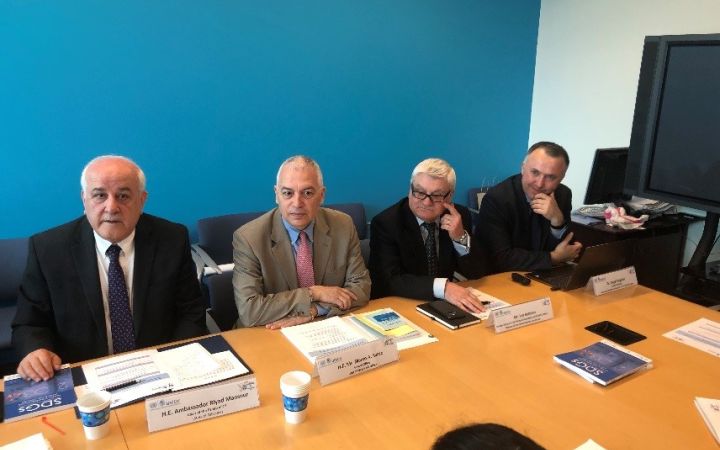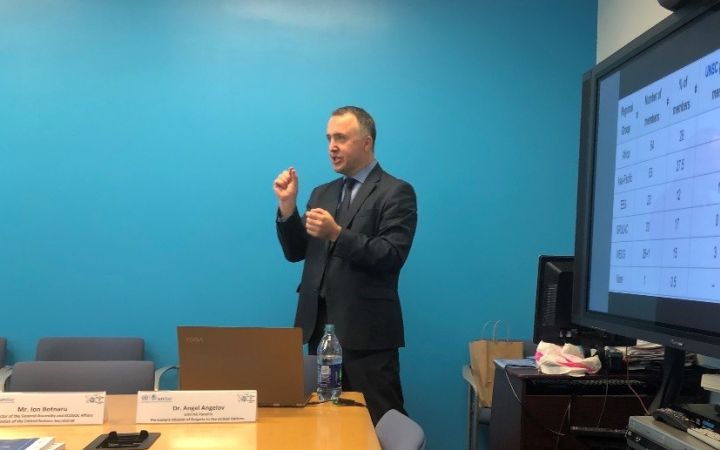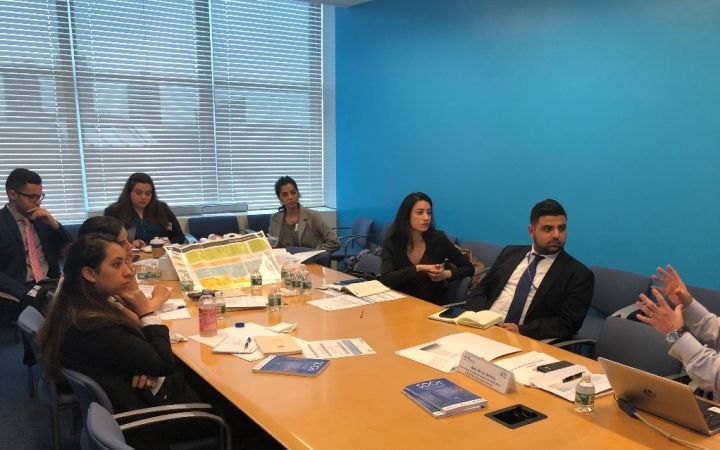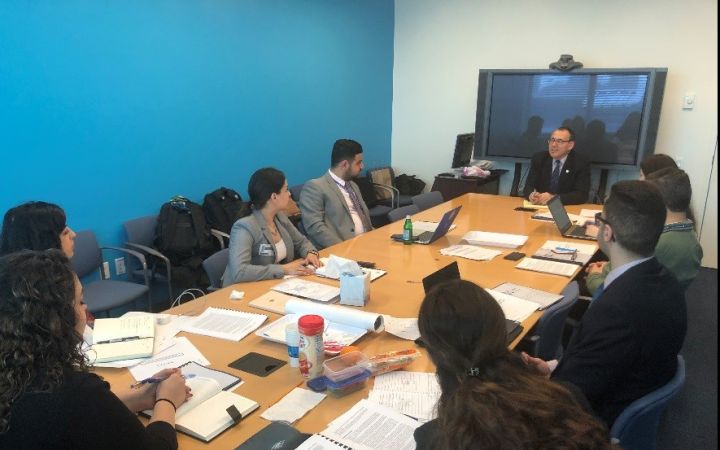1 - 3 May 2019, New York, USA - The United Nations Institute for Training and Research (UNITAR) held a three-day training course on “Introduction to the work of the United Nations and Skills in Multilateral Diplomacy” for the Team Members of the Palestinian Delegation for their Chairmanship at the G77. The training was developed under the programme “Leveling The Playing Field” sponsored by the Permanent Mission of Sweden to the United Nations.
The training started on 1 May 2019 with the opening address by Mr. Marco Suazo, Head of UNITAR New York Office and H.E. Ambassador Riyad Mansour (State of Palestine) Chair of the Group of 77. First day was a daylong training where participants got to learn more about the work of the diplomat in New York. After welcoming remarks, Dr. Angel Angelov, First Secretary and Middle East focal point of the Mission of Bulgaria to the United Nations described the UN charter, mentioned the items to be considered at Plenary Meeting in the General Assembly and the work process of 2nd and 3rd Committee.
The participants had the opportunity to learn more about the structure and the work procedures of the General Assembly, the Security Council and the Economic and Social Council. Senior UN officials also introduced the delegation to various departments, funds and Agencies providing the diplomats with a general overview of the complex UN system.
During the afternoon, Mr. Ion Botnaru, former Director of the General Assembly and ECOSOC Affairs Division of the United Nations Secretariat provided a historical overview and background of the United Nations and the Palestinian diplomats benefitted from his deep knowledge of the Rules of Procedure of the General Assembly. Mr. Botnaru discussed about formal and informal meetings, and mentioned about the importance of informal meetings. The different responsibilities of the General Assembly and the Security Council were discussed, and specific Rules of Procedure of the General Assembly analyzed and clarified. The diplomats from Palestine were highly engaged in the topic following up with further applicable case studies for their upcoming months at the United Nations.
The following day, the morning opened with Mr. Botnaru, who continued by providing general guidelines for drafting resolution and helpful insights into technical questions. He also shared his vast experience in multilateral diplomacy and the ins and outs of the General Assembly with the Palestinian officials, preparing them to participate more efficiently in international conferences and meetings.
The afternoon was focused on the 2030 Sustainable Development Agenda with Professor Narinder Kakar, an accredited Permanent Observer to the UN for the United Nations mandated University for Peace. Participants were taught the road from Kyoto to how In December 2015, countries adopted the new historic Paris Agreement on climate change. 195 Parties to the UN Framework Convention on Climate Change (UNFCCC) pledged to curb emissions, strengthen resilience and joined to take common climate action. This followed two weeks of negotiations at the United Nations climate change conference (COP21).
During the session, participants were explained all the crucial areas that were essential for a landmark conclusion under the new commitment, which are: mitigation – reducing emissions fast enough to achieve the temperature goal; a transparency system and global stock-take– accounting for climate action; adaptation – strengthening ability of countries to deal with climate impacts; loss and damage – strengthening ability to recover from climate impacts; and support – including finance, for nations to build clean, resilient futures.
The main elements of the agreement made in Paris were discussed. What impact this new agreement will have in the achievement of the SDGs; what challenges rise ahead for the implementation of the new climate change commitments; and what efforts do countries have to make in order to mitigate and adapt climate change effects. The last session included an introduction and presentation of the Group 77 by Mr. Mourad Ahmia - Executive Secretary of G77 Group which went through the history, membership and focus of the group.
The three training programme was concluded successfully, as the various sessions fully achieved its vision of preparing and enabling participants to successfully describe their functions; gain an overview of critical issues to the work of the Main Committees; effectively engage in discussions on subject matters relevant to their respective committees; and become sensitized to the special procedures and dynamics for their activities in the upcoming months as members of the Mission.





